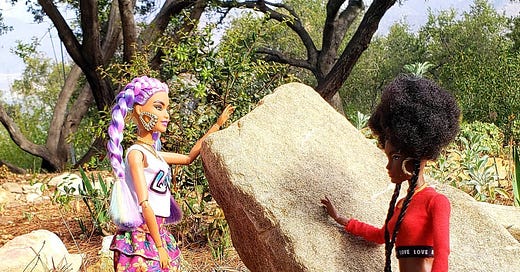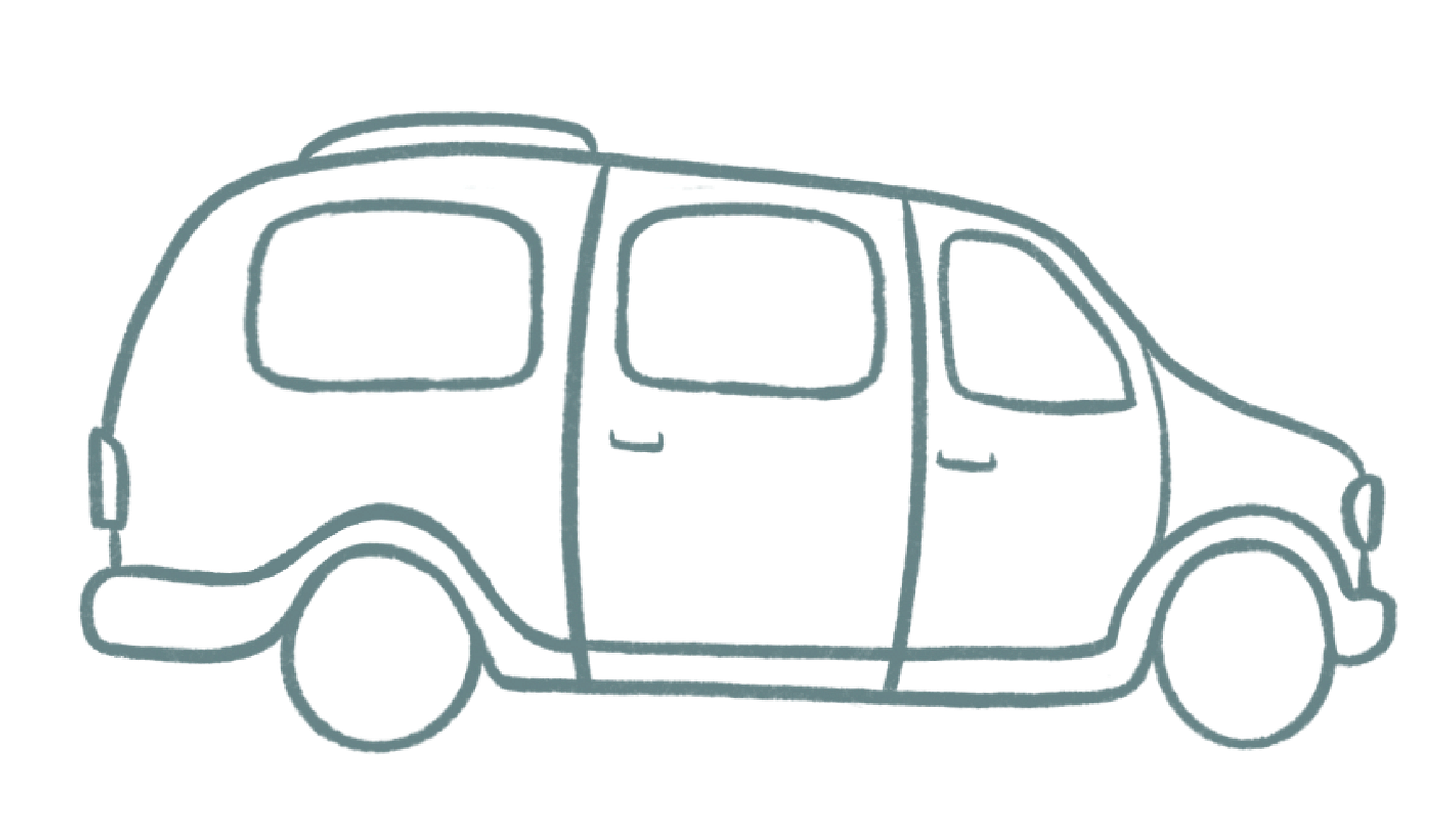
“Hey.” I called, waving the note I’d found jammed into my locker, one hand still awkwardly balancing my lunch tray. “This yours?”
The other girl, once I’d figured out who she was, had registered vaguely as a quiet person I maybe shared a class with. Now, she whirled to face me.
Woosh, woosh. Woosh, woosh. Blood thumped in my ears. Pinpricks tingled along my jawline and temples. My face felt cold, my hands, slippery.
She may have repeated the accusations, her words folded unevenly like the lined page, tight like the thin blue loops that filled it top to bottom and margins, and hard like the blots of ink-smudged indentations. She may have narrowed her eyes and directed at me the word “racist”; it may have shot from her mouth like something clogging her airway, dislodged by a sharp thrust. She may have said, “Yeah, what of it?” She may have said nothing, only stepped toward me. I may have stepped toward her first.
I dropped my tray on an empty table; the clatter of utensils rang like a prelude. The thud of her books on the floor opened the lane for our next steps. We moved inward, closing the distance between us, closing out the chatter, the bins wafting tomatoey garlic scraped from half-empty trays, the growing momentum of attention we were surely garnering. We two were all I knew. The sour scent of our sweat mingled. Her eyes were wide. Her breath warmed my face.
If she spoke again, I didn’t know, was only pleased to come up with something “clever,” something to keep me from trembling. “You’re breath stinks,” I said. Or maybe, “Get your stinky breath out of my face.”
For the smallest moment, she winced, her face and posture falling into a picture of sadness. For the smallest moment, a voice raced from the depths of me, crying, Take it back.
But it was muffled, a squeak against the beat guiding our adaptation of the movement—insults tumble into shoves barrel into punches thrown. She shoved. I shoved back. My brain has lost the flurry of limbs that moved us toward the lunchroom wall. There I, too soft and coddled to be scrappy even if I wanted to (and, not knowing bravery from bravado, I did want to), was pressed against the wall, her arm around me neck. I threw an elbow, felt it connect with a cheekbone. My lunch roiled in my stomach. We were pulled apart.
What came next was the shitty part. Both of us in the main office. She, escorted in to see the principal before I even arrived. Me, my face red and splotchy, the raging flow of adrenaline, fear of punishment, and guilt splaying the dam of my efforts like branches before a burst pipe. I sat, back to the glass wall of the front office. The class bell rang. For a century, our classmates sauntered past. Giggles spilled like sunlight if it could anticipate the drawing of curtains. Sneakers squeaked, the last vestiges of unbound energy soon to be contained once more.
The hallways at last had mercy on me, growing silent by the time I was ushered into the principal’s office. The office staff must have orchestrated our movements. We didn’t cross paths on her way out, my way in. I doubt I said much. I was sent home for the day. She, I’d learn later, was suspended. She was black. I was white.
Initially, I was relieved, if surprised, to find my mom tender, no punishment doled out. I didn’t wonder after the other girl. It only slowly dawned on me over the next couple of days what was obvious. I wasn’t in trouble because the story had been interpreted as simple: Wisp-like, “good-girl” me attacked by mean, “bad-girl” her.
I knew it wasn’t true. We’d each performed the dance of adolescent altercation like experts despite the dolls we still played with at home. I knew the disparate treatment was unfair, though I didn’t quite understand it, too, was a long-practiced number. I knew it related to the color of our skin.
Still, shame and fear won out. At home, I allowed myself to lean into the story of my having courageously defended myself against someone tougher than me, someone who’d falsely accused me. At school, I tried not to discuss it. I quashed thoughts of what she was experiencing. I let her return to what she’d been to me before—a shadow whose presence I wasn’t aware of.
Over the years since, an evolving shooting star of wishes has trailed me. I once longed to infuse my younger self with the backbone to speak out, to say something to the principal about the unfairness of out treatment. Then the wish for my former self became the emotional intelligence to practice curiosity, not defense, to find out what slight had prompted the note.
As I write, though, I look back at how we kids at my largely white middle school in northern Utah cordoned ourselves off. The white girls in a few different groups. The Latina girls. The black girls. We weren’t entirely separate of course, or hostile. But at least in my memory, more nuanced cliques and crossover aside, for the most part, we did what those who came before us had done, what we saw in news and entertainment, what our neighborhoods and churches made easy by geography and proximity.
I wish some adult would have helped me ponder what I might have. Did the other girl cry, too, alone in the principal’s office? What lessons had life taught her about her tears? How did they differ from those I’d learned about mine? Did her mom pick her up? Was she, like me, surprised at the reactions dealt her? Or were they what she’d come to expect? How would they shape her expectations going forward? How would they shape mine?
Imagine the two of us having been seen for what we were and shown a mirror to reflect to us that image. We were kids navigating insecurities, injustices, and challenges to our budding identities. We were novices; think of the steps we could have invented, cartwheeling like untethered energy in a sunlit hallway on a break between social studies and science, if only we knew we could create a new dance. We were two potential friends.
Three decades and some change on, I sit across the table from a bartender friend the other night after his shift has ended. He’s frustrated. So am I. We’ve somehow landed on topics we’re so far apart on discussion is like trying to drink from an empty cup again and again. So, when he shifts to one I want to hear, it takes me a moment to catch up.
“Black is bad here,” he says a second time. He dips into the wings we’re sharing, blows the air from his chest. After George Floyd, he is saying, cities like Seattle embraced antiracism like the latest fad. Now, it’s no longer the bright, shiny thing, and nothing’s changed. The other day, he had to ask the owner of one the bars he works at to turn off a Bob Dylan song whose lyrics include the n-word. When he turned in a paper in the English class that’s part of the MBA program he’s gone back to school for, the teacher’s response to his address of racism was that it was old news. When newcomers walk in his bar, faces often register surprise or hesitation. He’s tired.
“I’m sorry,” I say. “I can only try to imagine.”
Back in the van, I think of my trip to the laundromat before the bar. I saw a man with an exaggerated expression I couldn’t read from inside my parked car and the way his face was tilted away from me. Grimace or laughter? He was moving, too, in a way I couldn’t be sure of, dancing playfully or coming at the man he was moving toward, who was leaning against the brick wall of the building. Danger, was my body’s immediate reaction. The men were black.
When I studied closer, it was clear all was well. Sunlight spilled around us, and I smiled as the men greeted each other warmly. I knew, though I’ve checked myself before and will continue to do so as many times as it takes, the color of their skin played into my response.
I’m grateful for social media that has allowed me to see into the lives of the women many of us girls from back when have become, for warm long-distance interactions. Searching the internet, I’m grateful to find the mirror of this talk by Verna Myers. I don’t want to be “good.” I want to be real. I want to invent new steps.






Love your writing Holly. The story hit home for me.
What was the note all about???